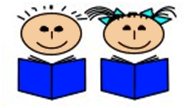Computing
At Whitwell, we have a wealth of resources to teach computing skills both as a discrete subject and for use across the curriculum. Our provision includes laptops, iPads and netbooks which can be used throughout the school. Each classroom is also equipped with an interactive whiteboard or a HD screen as well as a handful of desktop computers.
The computing curriculum has been organised so that at the start of the year many of the e-safety aspects are covered and then revisited at points throughout the year to keep them fresh. In February each year the whole school again focusses in on online safety in line with Safer Internet Day.
Intent
All pupils at Whitwell have the right to have rich, deep and exciting learning experiences that balance all the aspects of Computing. With advances in technology moving so fast and the move to a ‘digital world’ being ever closer, we at Whitwell see the importance of ensuring our children leave us equipped with the necessary skills they will need to engage with technology effectively and safely. Computing has strong links with many other curriculum areas which we aim to make children at Whitwell aware of and provide them with opportunities to practise skills learnt in other areas on a digital platform. Pupils are introduced to a wide range of technology, including: programmable toys, laptops, tablets and interactive whiteboards, allowing them to transfer and improve the skills they learn from device to device. This ensures that they become confident in their ability to adapt their computing knowledge in order to become active users of technology, readying them for the future workplace.
Implementation
Computing at Whitwell is broken down into three strands that make up the computing curriculum. These are Computer Science, Information Technology and Digital Literacy. Computer Science underlines the knowledge and skills relating to programming, coding, algorithms and computational thinking. Information Technology includes the knowledge and skills relating to communication, multimedia and data representation and handling. Digital Literacy is an understanding of the knowledge and skills relating to online safety and uses for technology. We follow the Purple Mash scheme of work from Year 1-6, ensuring consistency and progression throughout the school. Units cover a broad range of computing components such as coding, spreadsheets, Internet and Email, databases, communication networks, touch typing, animation and online safety. Each unit starts by revising key vocabulary and skills taught in the previous year.
Impact
Our Computing curriculum is planned to demonstrate progression and build on and embed current skills. We focus on progression of knowledge and skills in the different computational components and measure the impact of our curriculum using the following methods:
- An ongoing assessment against the planned Computing outcomes
- Children can understand and apply the fundamental principles and concepts of computer science, including abstraction, logic, algorithms and data representation
- Children can analyse problems in computational terms, and have repeated practical experience of writing computer programs in order to solve such problems
- Children can evaluate and apply information technology, including new or unfamiliar technologies, analytically to solve problems
- Children are responsible, competent, confident and creative users of information and communication technology
- Pupil discussions about their learning
